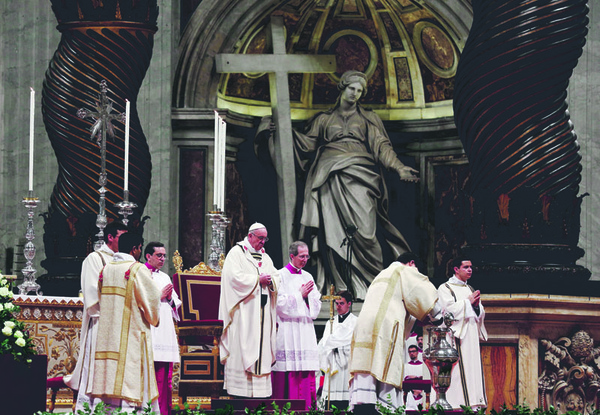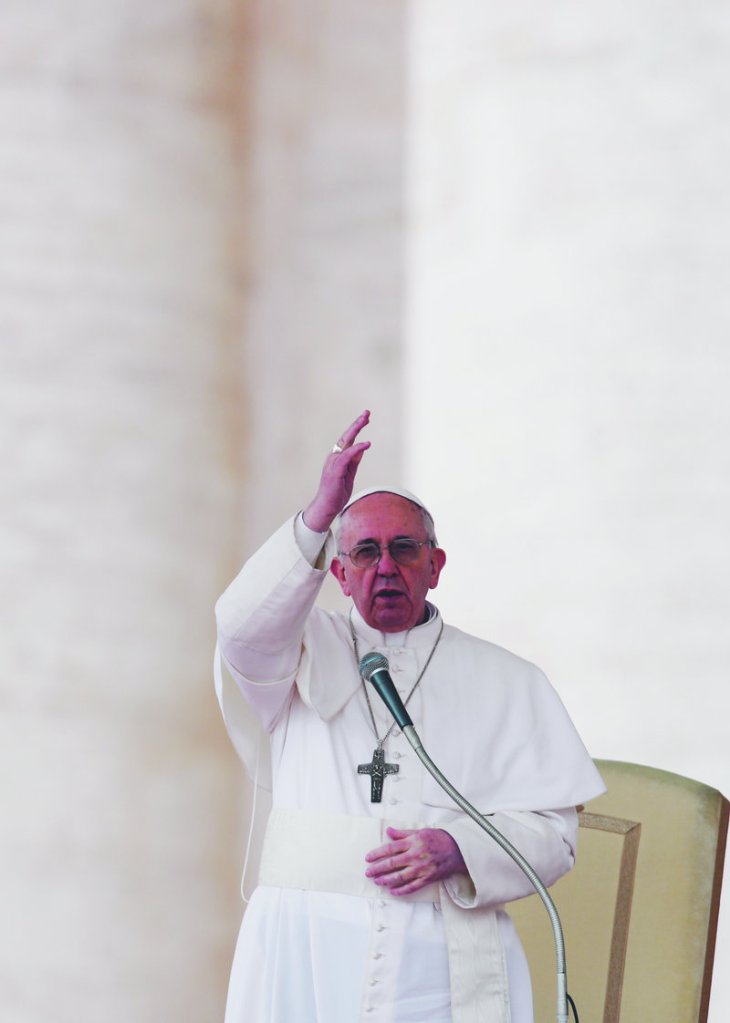Pope Francis’ selection as the leader of Catholicism is rightly being heralded as a breakthrough for his faith.
Coming from Latin America, the former Argentine cardinal represents a major geographic shift away from Rome and Europe. More important, he embodies a titanic shift in Christianity. The faith is growing rapidly in Latin America, Africa and Asia.
This is true not only for Catholicism. It also is so for evangelicalism, Pentecostalism, Anglicanism, Presbyterianism and other expressions.
In religious circles, this phenomenon is known as the Global South. The trends that play out there are worth watching to understand global events. The trends will keep reshaping the universe of religion as well as of international politics.
The Global South was the focus of a recent discussion on the Dallas Morning News’ Texas Faith blog. One panelist, Keri Day, described the faith in the southern parts of the globe as often being borne out of the challenges of living under oppressive conditions.
Wrote Day, a theology professor at Texas Christian University’s Brite Divinity School:
“It is worth noting that the explosion of faiths in the Global South, particularly of the Pentecostal and Charismatic movement, has been able to take root because of the deteriorating economic and material conditions that have been prevalent in these countries. Many people in the Global South are trying to make meaning and fashion contexts of hope and transcendence in response to the despairing economic impoverishment they often experience and endure.”
As people look for meaning amidst their struggles, religion can become more personal. The deep-rootedness creates a vibrancy sometimes lacking in western churches, where the teachings can be too ethereal or so rooted in social justice that they sound like a political platform.
I have seen the power of a deep personal faith in small Protestant churches in Mexico. Worship services, for one, are inspirational and practical, generating strength for members to survive amidst poverty and, in some cases, to cope with drug violence.
Pope Francis apparently espouses a more personal faith. The Argentine reportedly is less theologically and intellectually based than his German and Polish predecessors.
That said, religion in the Global South also presents a problem for existing social structures. Liberation theology was born there in the 1970s as a way to challenge political systems for their treatment of the poor.
Even believers who didn’t embrace liberation theology have questioned the economic conditions around them as well as the loss of individual rights. Pope Francis rejected liberation theology, but is known as a friend of the poor and once said of his home country: “We are tired of economic systems that produce poor people that the church has to support.”
At the same time, a social conservatism has arisen out of the more orthodox theologies and traditional approaches to Scriptures found in places like Africa and Latin America. This conservatism particularly has been instrumental in the split within Anglicanism over issues such as same-sex marriage. Christians in the southern hemisphere rebuke their liberal western brethren for being open to gay rights.
Pope Francis reflects this social conservatism, too. He called a legislative attempt in his country to create same-sex marriages “a move by the Father of the Lie that seeks to confuse and fool the children of God.”
Another important feature to watch in religious movements in the world’s southern half is the interplay of Christianity and Islam, which also is growing fast there. In some places, these two faiths are literally rubbing up against each other.
In Nigeria, for example, Christians and Muslims are fairly evenly split. This has contributed to tensions in one of the world’s largest oil countries. Religion, politics and oil are obviously a powerful concoction.
This is the kind of trend that will keep playing itself out as religion in general grows fast in the southern hemispheres.
Not all of those trends will be combustible. A new pope is coming from there to lead the world’s largest expression of Christianity. That’s a remarkable turn of events. It won’t be the last major upheaval, though, arising out of the Global South.
Copy the Story Link
Send questions/comments to the editors.




Success. Please wait for the page to reload. If the page does not reload within 5 seconds, please refresh the page.
Enter your email and password to access comments.
Hi, to comment on stories you must . This profile is in addition to your subscription and website login.
Already have a commenting profile? .
Invalid username/password.
Please check your email to confirm and complete your registration.
Only subscribers are eligible to post comments. Please subscribe or login first for digital access. Here’s why.
Use the form below to reset your password. When you've submitted your account email, we will send an email with a reset code.